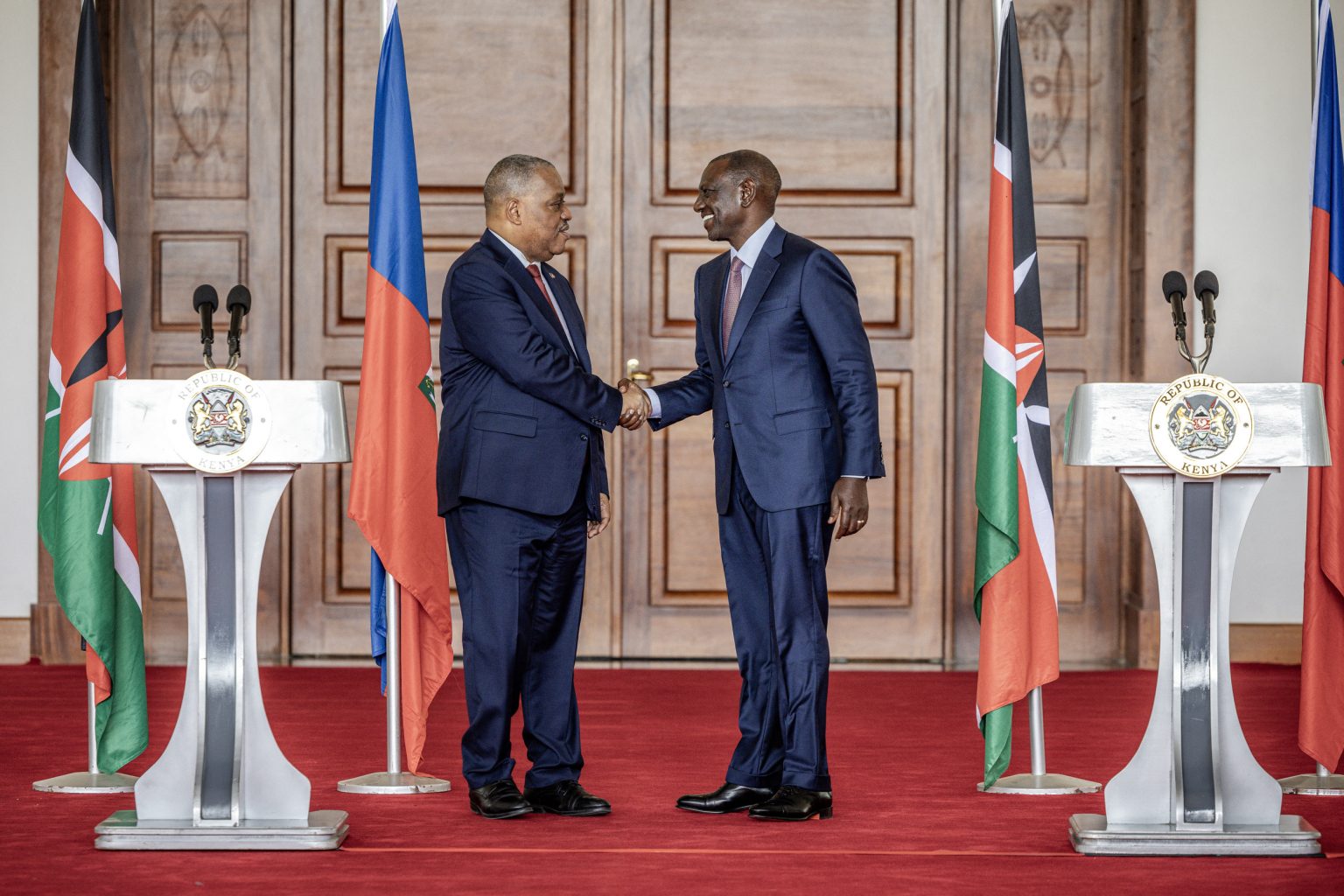The escalating gang violence in Port-au-Prince, Haiti, has plunged the city into a state of perpetual insecurity, forcing Kenyan police officers deployed as part of a multinational force to confront daily hostilities. Gangs now dominate an estimated 85% of the city, wielding significant power and control. The pervasive violence has severely disrupted humanitarian efforts, with organizations like Doctors Without Borders suspending operations due to safety concerns, leaving vulnerable populations with limited access to essential aid. The Kenyan forces, backed by the United Nations, are engaged in a relentless struggle against these heavily armed gangs, with recent firefights near the abandoned National Police headquarters serving as a stark reminder of the volatile security situation. While the mission’s leadership projects confidence in their ability to dismantle the gangs, the reality on the ground paints a more complex picture.
The humanitarian crisis in Haiti has reached catastrophic proportions, fueled by the unrelenting gang violence. The first quarter of 2024 alone witnessed a staggering 2,500 casualties, marking the deadliest period since the UN began tracking statistics in 2022. The displacement figures are equally alarming, with an estimated 700,000 people forced to flee their homes as gangs burn and loot communities to expand their territorial control. This widespread displacement further exacerbates the humanitarian crisis, straining already limited resources and leaving countless individuals vulnerable to exploitation and abuse. The violence disproportionately affects children, with half of the recently displaced population being children, highlighting the urgent need for increased humanitarian assistance and protection for this vulnerable group.
Despite the presence of the multinational force, including the Kenyan contingent, concerns persist about the effectiveness of the security operations. Critics point to the inability of the combined forces to secure gang strongholds or apprehend key gang leaders, raising doubts about the long-term impact of the intervention. Internal issues within the Kenyan contingent further complicate matters, with reports of nearly 20 officers tendering resignations due to delayed payments and substandard working conditions. While these officers continue to serve, their grievances remain unresolved, potentially impacting morale and operational effectiveness. The conflicting accounts regarding salary payments, with the Kenyan police chief claiming payments up to October while officers report receiving their last payment in September, underscore the lack of transparency and accountability surrounding the mission’s financial management.
The magnitude of the humanitarian crisis in Haiti is truly staggering. Last week alone, approximately 42,000 people were displaced, half of them children. Looking ahead, UNICEF projects that a staggering six million people, including 3.3 million children, will require humanitarian assistance in the coming year. This dire situation underscores the urgent need for increased international support and resources to address the escalating crisis and provide essential aid to those in need. The international community, particularly the United States and other nations, are advocating for a more robust UN peacekeeping mission, recognizing the limitations of the current operation, which is hampered by insufficient resources and funding. However, the transition to a full-fledged peacekeeping force faces obstacles due to resistance from China and Russia, who prefer to grant the existing mission more time to achieve its objectives.
Political instability further complicates the already challenging situation in Haiti. The recent dismissal of acting Prime Minister Garry Conille by the Transitional Presidential Council, after only a few months in office, highlights the ongoing power struggles and lack of political cohesion. The appointment of businessman Alix Didier Fils-Aimé as the new acting Prime Minister adds another layer of uncertainty to the political landscape. The internal conflicts within the council, established to oversee the democratic transition, hinder efforts to restore order and stability. French President Emmanuel Macron’s critical remarks about the council, describing them as “morons” for dismissing Conille, further expose the dysfunction and lack of effective leadership within the transitional government. This political turmoil exacerbates the security and humanitarian crises, creating a vicious cycle of instability and suffering.
The convergence of escalating gang violence, a deepening humanitarian crisis, and persistent political instability paints a grim picture of the situation in Haiti. The Kenyan police officers deployed as part of the multinational force face an incredibly challenging and dangerous environment, struggling to contain the rampant gang activity and protect vulnerable populations. The conflicting reports about their working conditions and payment status underscore the complexities and challenges inherent in international peacekeeping operations. The urgent need for increased humanitarian aid, compounded by the political instability and the international community’s divided approach to intervention, creates a daunting task for those working to restore peace and stability in Haiti. The international community must overcome its internal divisions and provide the necessary resources and support to address this multifaceted crisis and prevent further suffering for the Haitian people.

